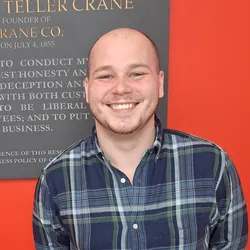Low Delta-T Syndrome is a persistent challenge in HVAC systems. It leads to increased energy use, higher carbon emissions, and reduced equipment lifespan, all of which impact operational efficiency and sustainability. This session will explore the root causes of Low Delta-T, including poor hydronic balancing, inaccurate valve settings, oversized or underperforming components, and limited visibility into key system parameters such as flow, temperature, and pressure.
The focus will be on how smart valves, equipped with integrated sensing, can help address these issues. By enabling continuous monitoring and automated control, these technologies offer a practical route to improving system performance and reducing energy waste.
The session will also highlight the importance of collaboration between manufacturers and systems integrators. By working together from the design stage through to commissioning and operation, it’s possible to deliver smarter, more resilient systems that are easier to maintain and better aligned with sustainability goals.
Attendees will leave with a clear understanding of Low Delta-T Syndrome, how to identify it, and how to address it using connected technologies. The session will also provide practical insights into how to engage with manufacturers to specify and implement data-driven solutions that deliver measurable results.
This talk is aimed at systems integrators, consultants, engineers, and building operators who are looking to improve HVAC performance, reduce energy costs, and future-proof their systems in line with the growing demand for smart, sustainable buildings.

Crane Fluid Systems
Samuel Willis serves as Product Manager at Crane Fluid Systems, overseeing the Connected Solutions and Variable Flow portfolios.
After successfully completing his MEng in Design Engineering from Imperial College London, he obtained Enterprise Fellowships at the Royal Academy of Engineering and Royal Commission of 1851, and now focuses on integrating smart sensing technologies into hydronic systems to enhance building efficiency and performance.
Samuel is particularly driven by the intersection of automation, optimisation, and mechanical design, and is committed to advancing innovation within British manufacturing.
JOIN OUR MAILING LIST
Be the first to hear about exhibitors, speakers and what's on at our upcoming events.
You'll also receive our free weekly newsletter from Smart Buildings Magazine & Smart Infrastructure Magazine.
Interested in attending Smart Buildings Show
REGISTER NOW